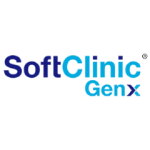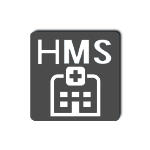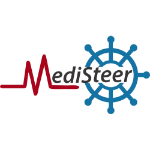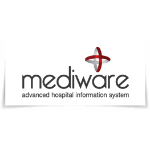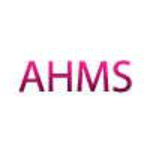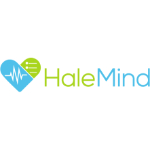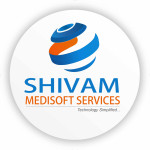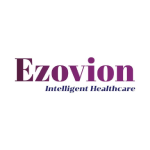List of Best Hospital Management Software
Showing 10 of 240 productsSoftClinic Software is a HMS & EHR Software for small to medium scale hospitals. It comes with various modules, such as lab, pharmaceutical, resource management, inventory, and accounts...Read SoftClinic Reviews
Aarogya HMIS is a powerful and comprehensive hospital management software that ensures the secure management of information. It offers effective and reliable solutions for general hospital management, including organizing financial accounts and patie...Read Aarogya HMIS Reviews
KnowIT HMS is a leading hotel management system designed to streamline the operations of modern hotels. With its intuitive interface and user-friendly features, it offers a hassle-free solution for managing reservations, guest information, invoicing,...Read KnowIT HMS Reviews
MediSteer is a leading software solution designed for the healthcare industry. Developed with a deep understanding of the complex and dynamic needs of healthcare organizations, MediSteer streamlines processes, improves efficiency, and enhances patien...Read MediSteer Reviews
Mediware, is a solution for all your healthcare management needs. With years of expertise and innovation, our software stands out as a one-stop platform that offers efficiency, accuracy, and convenience. We pride ourselves on revolutionizing the heal...Read Mediware Reviews
AHMS, an innovative software designed to enhance your business operations. With its advanced technology and user-friendly interface, AHMS streamlines processes and increases efficiency. From seamless data management to improved decision-making, AHMS...Read AHMS Reviews
A fully integrated HIMS with more than 60 pre-integrated modules is a and pre integrated software solution designed to manage and automate various operational process within a hospital...Read KareXpert HIMS Reviews
Halemind, the innovative software designed to enhance your mind and optimize your performance. With its advanced features and user-friendly interface, Halemind is a tool for boosting your cognitive abilities and achieving your goals. Say hello to a s...Read Halemind Reviews
Neosoft HMS is a complete Hospital Management System that automates healthcare processes. It provides effective patient management, scheduling, invoicing, and electronic health records. Neosoft HMS optimizes healthcare delivery, decreases administrat...Read Neosoft HMS Reviews
Meet the unique needs of your hospital and deliver superior healthcare with EzovionHMS
Ezovion Hospital Management Software is an exclusive, dynamically integrated platform that manages your OPD, IPD, EHR, Daycare, Queue management, Lab, Pharmacy, Radiology, Inventory, Tele-Consultancy, IVR and workforce management solutions. We offer...Read Ezovion Reviews
- What Is Hospital Management Software?
- Who Uses the Hospital Management Software?
- What are The Benefits of Using an Hospital Management System?
- What Are the Features of Hospital Management Software?
- What are The Steps to Choose the Best Hospital Management Software?
- What Are the Latest Technology Trends in Hospital Management Software?
- Some Additional Resources That Can Help in Better Understanding
Buyer's Guide for Choosing the Right Hospital Management System for Hospital Business
Confused by hospital software options? Our buyer’s guide breaks it down—find the right system to streamline operations and grow your hospital business.
What Is Hospital Management Software?
Hospital Management Software (HMS) is a digital system that helps to streamline and increase the efficiency of healthcare institutions like hospitals, clinics, and medical centers. It connects a healthcare organization's numerous roles and procedures, such as patient registration, appointment scheduling, billing and invoicing, electronic medical records (EMR), inventory management, and staff management.
HMS aims to improve the overall quality of patient care by guaranteeing accurate and fast access to patient information, eliminating paperwork, minimizing errors, and enhancing communication between healthcare practitioners.
Who Uses the Hospital Management Software?
Following are some roles in Helathcare industry who needs this software most:
1. Hospital Administrators
-
Use HMS to manage hospital operations, staffing, finances, and compliance.
-
They rely on dashboards and reports to make data-driven decisions.
2. Doctors and Specialists
-
Access patient records, medical histories, lab results, and prescriptions.
-
Use the system to manage appointments, diagnostics, and treatment plans.
3. Nurses and Clinical Staff
-
Track patient vitals, administer medication schedules, and monitor treatment workflows.
-
Use nursing modules for efficient coordination and care delivery.
4. Front Desk and Reception Staff
-
Schedule appointments, manage patient admissions, billing, and insurance processes.
-
Handle registration and maintain patient flow across departments.
5. Billing and Finance Teams
-
Use HMS to manage invoicing, insurance claims, payment tracking, and financial reporting.
-
Integrate with accounting tools or ERP systems for seamless transactions.
6. IT and Compliance Officers
-
Maintain software security, data privacy (e.g., HIPAA compliance), and ensure system uptime.
-
Customize modules and ensure integration with other hospital tech.
7. Hospital Owners / Executives
-
Access high-level insights through analytics and reporting dashboards.
-
Monitor performance, patient satisfaction, and return on investment (ROI).
What are The Benefits of Using an Hospital Management System?
The healthcare management system will tremendously influence the operations of your healthcare organization.
The following are some top benefits of implementing hospital software:
1. Digitized Operations & Centralised Control
Modern systems digitize and streamline many aspects of hospital administration, including patient registration and discharge. By replacing manual operations with automated systems, hospitals may increase productivity, minimize paperwork, and assure better departmental cooperation.
Key features:
-
Electronic health records (EHRs).
-
Digital scheduling and billing.
-
Cloud-based access to real-time changes
2. Improved Patient Experience
By automating administrative procedures, doctors and staff may devote more time to patient care.
Patients profit from:
-
Shorter wait times.
-
Easy access to reports and bills.
-
Streamlined admission and discharge processes
This improves patient happiness and strengthens the hospital's reputation.
3. Reduced errors and improved accuracy
Manual data entry frequently produces errors and discrepancies. Software used in hospital environments takes help of automation and AI to avoid duplication, reduce human mistake, and maintain data integrity particularly critical for:
-
Medication Tracking
-
Patient records
-
Insurance Claims
4. Improved Decision-Making with Accurate Data
Advanced HMS provides real-time analytics and reporting. With AI and machine learning skills, doctors can:
-
Identify patterns in the patient's history.
-
Make faster and more accurate diagnoses.
-
Personalize treatment plans.
This leads to improved clinical outcomes and more efficient resource use.
5. Reliable Data Security
Patient data privacy is crucial. The top HMS tools offer:
-
Role-based access controls.
-
Encrypted databases
-
Regular backups on secure servers
This assures compliance with healthcare rules (such as HIPAA) and prevents data breaches.
6. Effective Financial Management
From registration to billing and insurance, HMS streamlines financial operations:
-
Automatic invoice generating.
-
Centralized billing.
-
Insurance Claim Submission and Tracking
Hospitals have improved revenue cycle management and less payment delays.
7. Enhanced team collaboration and transparency
With centralized data available in real time, all departments are on the same page. Collaboration becomes easy and clear, whether a nurse is verifying a patient's prescription history or a doctor analyzing lab data.
8. Effective inventory management
Hospitals must have a consistent supply of medications and equipment.
HMS solutions can help by:
-
Tracking inventory levels
-
Sending low stock alerts
-
Automating reorders
This eliminates stockouts and maintains consistent patient care.
What Are the Features of Hospital Management Software?
Some of the key features in HMS are as follows:
1. Clinical Management
A centralized system makes it easier to manage patient care, drugs, and clinical responsibilities.
Whether in a small clinic or a major hospital, the software simplifies:
-
Monitors patient interactions and medical history.
-
Medical professionals can view patient records in real time.
-
Instant communication with senior staff for consultations.
This simplifies the healthcare procedure and improves patient outcomes.
2. Health Monitoring and Progress Management
Keeping track of a patient's health state is critical for a successful recovery.
This digital solution allows healthcare providers to:
-
Update patient records instantaneously and track therapy progress.
-
Ensure that medical personnel are consistently informed and on the same page.
-
Manage a big number of patient data while providing tailored care.
This enables hospitals to provide prompt and effective care.
3. Appointment and Scheduling Management
Hospitals frequently struggle to handle the surge of patients, particularly during peak hours.
Traditional appointment techniques are prone to errors; however, with an integrated system:
-
Easily book and manage appointments without any conflicts.
-
Access open time slots promptly to reduce patient wait times.
-
Maintain orderly scheduling and promote smooth patient flow.
This promotes an efficient and well-organized healthcare environment.
4. Facility Management
Hospitals have many departments, rooms, and beds, thus resource management is crucial.
The software allows:
-
Real-time tracking of room and bed availability.
-
Instant information on patient occupancy enable improved space management.
-
Optimized room usage, even during peak patient volume.
This feature promotes effective hospital operations and avoids resource bottlenecks.
5. Inventory tracking and management
Hospitals rely on a steady supply of medications, equipment, and general supplies.
The app helps by:
-
Inventory levels are monitored, and supplies are automatically reordered when they run short.
-
Preventing shortages or overstocking saves time and money.
-
Centralizing inventory data simplifies material management across divisions.
The hospital's improved inventory management provides ongoing service delivery without unnecessary delays.
6. HR Management
Managing medical and administrative staff is hard, however the system simplifies it by:
-
Maintaining thorough profiles for each employee, including qualifications, specialties, and work experience.
-
Efficient personnel allocation ensures that the appropriate professionals are available for patient care.
-
Automating HR processes such as shifts, leave requests, and performance evaluations.
This leads to more effective staff management and helps keep the facility running smoothly.
7. Finance and Accounting Management
Accurate accounting and financial oversight are critical for all healthcare facilities.
The software offers:
-
Automated billing and invoicing reduces errors and delays.
-
Insurance claim processing and financial tracking improve cash flow management.
-
Profit, liability, and operational cost reports are updated in real time.
This greatly simplifies hospital finance management.
8. Medical Representative (MR) Management
Medical representatives play an important part in hospital operations.
The app helps by:
-
Keeping complete information about each medical representative, including their pharmaceutical items and sales success.
-
Managing supplier contracts and communications.
-
Drug efficacy is tracked via real-time input.
This tool improves procurement and relationship management with pharmaceutical businesses.
9. Monitoring drug efficacy
Medications must be regularly checked for efficacy.
This system allows hospitals to:
-
Monitor patient responses to certain therapy.
-
Monitor drug efficacy reports to ensure that patients receive the best possible care.
-
Encourage pharmaceutical experiments and relationships with drug businesses.
This leads to better treatment options and improved patient outcomes.
10. Patient Support and Feedback System
Providing high-quality patient care necessitates having a reliable support system.
The software provides:
-
Real-time monitoring of patient concerns and feedback.
-
A transparent system for tracking insurance claims.
-
Improved customer service, including billing inquiries and patient concerns.
This promotes improved patient satisfaction and continual service improvement.
What are The Steps to Choose the Best Hospital Management Software?
Here are some important steps that are involved in choosing the right hospital management tool for your business.
1. Assess Your Immediate and Future Needs
Before you choose a digital healthcare solution, you must first understand both your current requirements and the direction your hospital is heading.
Consider:
-
Immediate needs (patient management, billing, scheduling).
- Long-term objectives (scalability, future integrations, and technology upgrades).
This helps you identify the most suitable solution for streamlining your operations today, with the flexibility to grow tomorrow.
2. Request Product Demos to Test the Options
There’s no substitute for a hands-on experience. Request a demo of each system you’re considering to get a real sense of:
-
Ease of use: Can staff adapt to it quickly?
-
Functionality: Does it cover everything you need (patient records, financial tracking, scheduling)?
-
User interface: Is it intuitive and customizable?
A demo lets you see how the software operates in a real-world context, helping you make a better-informed choice.
3. Look for Customization and Flexibility
Each hospital is unique, so look for a solution that adapts to your specific needs.
A flexible system allows you to:
-
Personalize workflows and layouts to match your processes.
-
Integrate with existing systems (EHR, lab management systems, etc.).
-
Expand features as you grow, without the need for a full overhaul.
Customizability helps you fine-tune the software to fit your organization like a glove.
4. Check Customer Support and Assistance
Software is only as good as the support behind it.
Ensure that the provider offers:
-
24/7 technical support for urgent issues.
-
Ongoing maintenance to ensure smooth operations.
-
Training and onboarding for staff to help them get up to speed.
Reliable customer service can make all the difference when you need quick assistance or face system issues.
5. Plan for Regular Software Updates
Healthcare technology evolves quickly, and so should your software.
Be sure the provider offers:
-
Routine updates and bug fixes to keep the system stable.
-
New features and improvements that add value over time.
-
Clear details on upgrade policies, whether they are free or require extra costs.
Continuous improvements and updates ensure your solution stays current and secure.
6. Evaluate Compatibility with Your Existing IT Infrastructure
The software you choose should be compatible with your current infrastructure, ensuring smooth implementation.
Consider:
-
Hardware requirements: Does your system meet the software’s needs?
-
Network capabilities: Will your IT setup support the software’s demands?
-
Integration needs: Can the software integrate with other tools you already use (e.g., EHR systems, payroll)?
Making sure everything aligns from an IT perspective minimizes disruptions during installation.
7. Verify Compliance and Data Security
Patient privacy and data protection are paramount.
Choose a system that:
-
Complies with regulations (e.g., HIPAA, GDPR).
-
Encrypts sensitive patient data to safeguard it from unauthorized access.
-
Provides robust backup solutions to protect against data loss.
Data security is non-negotiable, so be sure the solution prioritizes it.
8. Ensure Scalability for Future Growth
Hospitals and clinics are always evolving.
The software you choose should be able to:
-
Scale as your patient base grows.
-
Add new features or modules to accommodate future needs (telemedicine, mobile access).
-
Support multiple locations or departments if you expand.
Scalability ensures that your system remains relevant as your organization grows.
9. Evaluate Cost vs. Return on Investment (ROI)
While the cost of the software is a key consideration, value is even more important.
Look for:
-
Transparent pricing: Know what you’re paying for upfront.
-
Long-term ROI: How will the system improve your operations and reduce costs over time?
-
Ongoing fees: Are there recurring costs like licenses, maintenance, or cloud hosting?
A system that provides solid ROI is often worth the initial investment.
Choosing the finest healthcare management system necessitates a thorough assessment of your hospital's requirements, IT capabilities, and future expansion plans. You will choose a system that streamlines your procedures and improves patient care after considering factors such as customization, support, and security.
What Are the Latest Technology Trends in Hospital Management Software?
Using technology is no longer a choice in the healthcare profession; it's an imperative. Digital breakthroughs are changing how care is given, from making patients better to making hospital operations more efficient.
These are the newest technology trends that are changing the way hospital information systems work:
1. Telemedicine Integration
Telemedicine is a key part of digital healthcare because technology lets clinicians talk to patients over video conversations from far away, which is especially helpful in rural or underserved areas.
With virtual care capabilities linked into hospital platforms:
-
Patients can get medical advice without going to the doctor.
-
Doctors can give consultations in real time and keep an eye on patients from afar.
-
It makes sure that service is contactless, which lowers the danger of infection.
This trend is likely to continue, which will make it easier, faster, and safer to get virtual health care.
2. The Internet of Medical Things (IoMT)
IoMT is a network of medical devices and wearables that are connected to each other. It lets you collect data and track your health in real time.
By connecting devices like:
-
Monitors for heart rate
-
Sensors for glucose
-
Intelligent beds
medical professionals can keep an eye on patients from a distance, spot early warning signs, and even set up automatic warnings. More and more, these gadgets are being combined with clinical software to make care coordination better and cut down on mistakes made by hand.
3. Artificial Intelligence (AI) & Machine Learning (ML)
AI and ML are leading the way in new ideas for healthcare IT solutions.
These tools are helpful:
-
Quickly and accurately look at complicated medical data.
-
Make predictions about how patients will do, how they will respond to treatment, or possible outbreaks.
-
Find patterns in lab findings or medical images to make smart diagnosis possible.
Hospitals that use AI-enabled technologies may make care plans that are tailored to each patient, which makes them more efficient and helps patients get well.
4. Cloud-Based Operations
Cloud technology is changing how hospitals work by giving them:
-
Access to data from all departments or facilities in different locations.
-
Updates to patient records, billing, and administration in real time.
-
Infrastructure that can grow with your business.
Hospitals cut down on IT costs, improve teamwork, and make sure that data is always available by transferring activities to the cloud.
5. Advanced Analytics and Big Data
Healthcare creates a lot of unstructured data, like EHRs and diagnostic reports.
Big Data tools in hospitals help with:
-
Collect and organize patient information from many different places.
-
Use real-time dashboards and analytics to give people useful information.
-
Support decisions based on data that make operations go more smoothly and improve patient outcomes.
This not only helps people make better decisions, but it also helps with predictive analytics for managing resources and preventing sickness.
Some Additional Resources That Can Help in Better Understanding
Seeking more information about hospital management software? Explore these essential resources to gain valuable insights and make informed decisions:
- What are the Benefits of E-Prescribing in the Healthcare Industry?
- Why Telemedicine Continue to Grow in a Post-Pandemic World?
- The Hospital Should Reduce Patient's Wait Time-Here’s How
- 10 Health Tech Mistakes You Should Avoid
- Top Ways to Optimize Your Healthcare RCM
- Amplify Patient Experience with Right Hospital Solution Implementation
